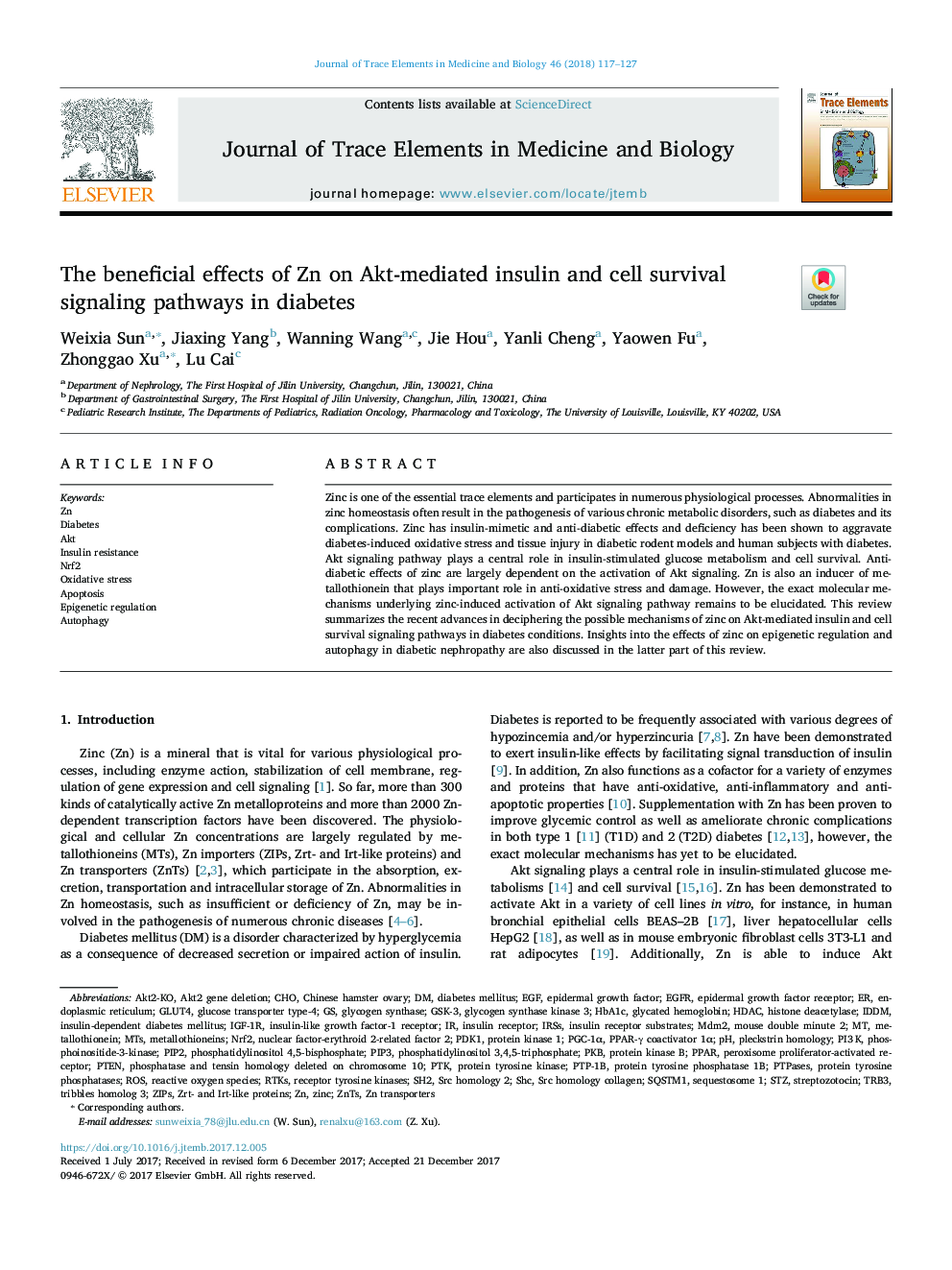| Article ID | Journal | Published Year | Pages | File Type |
|---|---|---|---|---|
| 7638967 | Journal of Trace Elements in Medicine and Biology | 2018 | 11 Pages |
Abstract
Zinc is one of the essential trace elements and participates in numerous physiological processes. Abnormalities in zinc homeostasis often result in the pathogenesis of various chronic metabolic disorders, such as diabetes and its complications. Zinc has insulin-mimetic and anti-diabetic effects and deficiency has been shown to aggravate diabetes-induced oxidative stress and tissue injury in diabetic rodent models and human subjects with diabetes. Akt signaling pathway plays a central role in insulin-stimulated glucose metabolism and cell survival. Anti-diabetic effects of zinc are largely dependent on the activation of Akt signaling. Zn is also an inducer of metallothionein that plays important role in anti-oxidative stress and damage. However, the exact molecular mechanisms underlying zinc-induced activation of Akt signaling pathway remains to be elucidated. This review summarizes the recent advances in deciphering the possible mechanisms of zinc on Akt-mediated insulin and cell survival signaling pathways in diabetes conditions. Insights into the effects of zinc on epigenetic regulation and autophagy in diabetic nephropathy are also discussed in the latter part of this review.
Keywords
PDK1PPARMTSSHCSTZIGF-1RGSK-3PKBGLUT4HbA1cIDDMIRSsPGC-1αSH2PIP3SQSTM1sequestosome 1PI3 KPIP2PTP-1BPTKPTPasesZn transportersHDACEGFREGFNrf2TRB3Mdm2ROSRTKsAktAutophagystreptozotocinChoDiabetesChinese Hamster OvaryOxidative stressApoptosisInsulin-dependent diabetes mellitusDiabetes mellitusInsulin receptor substratesendoplasmic reticulumepidermal growth factorNuclear factor-erythroid 2-related factor 2phosphatidylinositol 3,4,5-triphosphatephosphatidylinositol 4,5-bisphosphatephosphoinositide-3-kinaseZincMouse double minute 2MetallothioneinMetallothioneinsInsulin resistanceEpigenetic regulationSrc Homology 2tribbles homolog 3Pleckstrin HomologyGlycated hemoglobinhistone deacetylaseprotein tyrosine phosphatasesProtein tyrosine phosphatase 1BProtein tyrosine kinaseprotein kinase BPtenglycogen synthase kinase 3glycogen synthase Reactive oxygen speciesinsulin receptorreceptor tyrosine kinasesInsulin-like growth factor-1 receptorEpidermal growth factor receptorperoxisome proliferator-activated receptor
Related Topics
Physical Sciences and Engineering
Chemistry
Analytical Chemistry
Authors
Weixia Sun, Jiaxing Yang, Wanning Wang, Jie Hou, Yanli Cheng, Yaowen Fu, Zhonggao Xu, Lu Cai,
